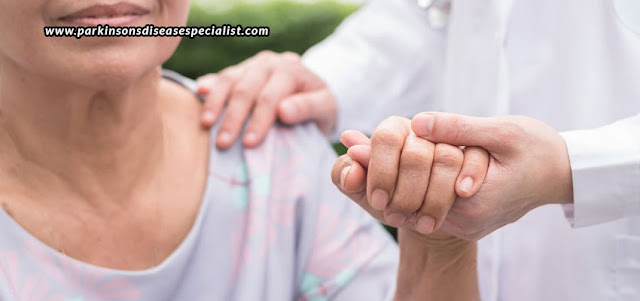Parkinson's Disease is a progressive neurodegenerative disorder that causes tremors, stiffness, and slow movement, which happens when the dopamine level in the nervous system begins to drop. However, these are only the initial symptoms of the movement disorder, when the patient suffers from the early stages of Parkinson's Disease. The disorder affects every individual differently but is likely to progress fast, if not brought under control. Once diagnosed, the patient should be treated at the earliest, by bringing them onto medications, injections, and therapies to manage their condition and control the symptoms (remember, Parkinson's Disease cannot be permanently cured!), which helps to keep the patient from progressing to further stages. But, if appropriate treatments are not taken up, the symptoms can worsen, shifting the patient rapidly towards end-stage Parkinson's Disease.
What is end-stage Parkinson's Disease?
As the name itself suggests, end-stage Parkinson's Disease is when the patient reaches the last stages, that is, stage 4 and 5 of the disorder, where the symptoms become debilitating. Moving ahead of stiffness, slow movement, and tremors, Stage 4 Parkinson's Disease brings upon severe rigidity and visible bradykinesia. These symptoms need patients to take assistance to stand, walk and move. Further, when the patient reaches Stage 5, he experiences severe posture issues in the back, hips, and neck, where he will require a wheelchair to move, or maybe completely bedridden! This further causes insomnia, inconsistency, and dementia.
What to do?
It becomes very challenging for not only end-stage Parkinson's Disease patients but also for their families. To make it easier to take care of such patients, it is advisable to speak with a hospice professional about the next steps. If required, the patient will be given professional caregiver assistance at home, or maybe shifted to the hospital for better care. However, patients are shifted to the hospital only under worst circumstances, such as, when they are bed-bound, have difficulty breathing even while at rest, have additional comorbidities or complications, or are unable to perform even the most basic daily routines without assistance.
The costs involved
If you have to move your loved one to a hospital, you may be certainly worried about the costs you’ll have to incur. But, one good news here is that hospice care is generally covered by insurance and medical plans. All medications, medical supplies, and medical equipment can be provided at no cost. Also, if the patient is not eligible for hospice care, home visits from a nurse practitioner can also be provided at zero costs.
For the right assistance…
If you are too confused about taking the right steps, all you need to do is approach the right professional. Dr. Shivam Mittal is one such professional who can provide you the most apt Advanced Parkinson's Disease treatment in UAE, while helping you take steps in the right direction. Your treatment plan will depend on your symptoms, and how your body responds to the medication. That’s because not every kind of treatment plan is apt for every individual. Every patient responds differently to different kinds of treatments; and thus, customized management of the ailment is important.
Stay social with us on: Facebook, Twitter, Instagram & YouTube

i was diagnosed of parkinson disease 5 years ago,i started azilect,then mirapex as the disease progressed in february last year,and i started on parkinson disease Herbal medicine from ultimate herbal home,few months into the treatment i made a significant recovery,almost all my symptoms are gone,great improvement with my movement and balance,it been a year and life has been so good for me,contact them at ultimatehealthhome@gmail.com
ReplyDelete
ReplyDeleteLiving with Parkinson’s felt like a never-ending struggle. Medications helped, but the symptoms always returned—sometimes worse. After a mix of hope and hesitation, I decided to try the herbal treatment from NaturePath Herbal Clinic.
At first, I was skeptical. But after about four months, I started noticing real improvements. My tremors lessened, stiffness eased, and my balance and coordination improved. For the first time in years, I felt in control of my body again.
This experience has been life-changing, and I’m truly grateful. If you're considering natural treatments for Parkinson’s, I highly recommend NaturePath Herbal Clinic.
Learn more at www.naturepathherbalclinic.com.